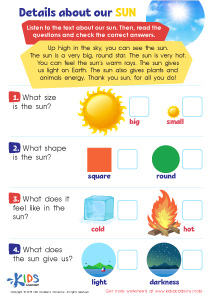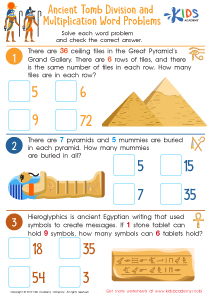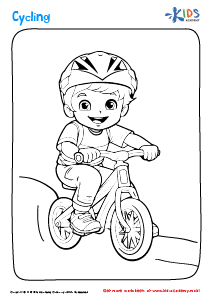Determine or Clarify the Meaning of Unknown Words Quizzes for Ages 4-6
6 results
6 filtered results
Clear all filters6 filtered results
-
From - To
Introducing our vibrant, interactive assessment quizzes designed specifically for Ages 4-6, focusing on the essential skill of determining or clarifying the meaning of unknown words. This engaging platform encourages young learners to explore and understand new vocabulary in a fun, supportive environment. Each quiz is crafted to challenge and stimulate young minds, providing immediate feedback to guide their learning journey. With a variety of contexts and playful illustrations, children are guided to make connections and expand their linguistic horizons. Embark on this educational adventure to enhance your child's ability to determine or clarify unknown words, building a strong foundation for lifelong learning.
In the crucial developmental stages of children aged 4-6, acquiring language and expanding vocabulary are foundational milestones. During this period, children are naturally curious, eager to explore the world of words around them. This is where our interactive quizzes on "Determine or Clarify the Meaning of Unknown Words for Ages 4-6" come into play, serving as an invaluable tool in bolstering a child's linguistic abilities.
Understanding the meaning of unknown words is not just about adding new words to a child's vocabulary. It's about nurturing an intuitive sense of language, fostering critical thinking, and enhancing comprehension skills. Our quizzes are meticulously designed with this in mind, aimed at helping young learners not only determine but also clarify the meanings of new or unfamiliar words they encounter in their everyday reading and conversations.
The interactive nature of these quizzes is what sets them apart. Unlike traditional teaching methods, which can sometimes fail to hold a child's attention, our quizzes are engaging and fun. They incorporate colorful visuals, playful sounds, and interactive tasks that turn learning into an enjoyable activity. This approach not only maintains the child’s interest but also enhances retention, ensuring that the new words they learn are remembered and understood in context.
For children ages 4-6, learning through play is a fundamental principle. Our quizzes capitalize on this by presenting challenges that are age-appropriate and align with their developmental stages. By determining or clarifying the meaning of unknown words through games and interactive tasks, children are more likely to feel a sense of achievement and motivation. This positive reinforcement encourages a love for learning, a crucial attitude that benefits all areas of their educational journey.
Parents and educators will find our quizzes to be a valuable resource. They offer immediate feedback, enabling adults to track a child’s progress and identify areas that may require additional support. Moreover, these quizzes can be easily incorporated into a child’s daily routine, providing a flexible learning tool that can be accessed at home or in the classroom.
Critical to the success of these quizzes is their emphasis on context. Children are not simply memorizing definitions; they are learning to understand how words function within sentences and stories. This holistic approach ensures that the learning is meaningful and applicable, empowering children to use their new vocabulary actively in their speech and writing.
In conclusion, our interactive quizzes on "Determine or Clarify the Meaning of Unknown Words for Ages 4-6" are more than just educational tools; they are gateways to linguistic confidence and curiosity. By engaging children in a playful and interactive learning experience, we are laying the groundwork for lifelong literacy and communication skills. As children navigate through the quizzes, they are not only building their vocabularies but also their understanding of the world around them, one word at a time.











